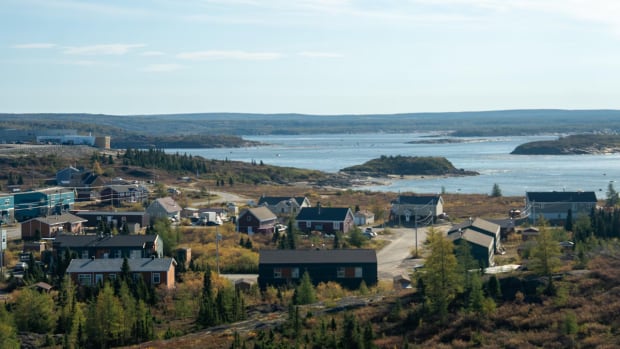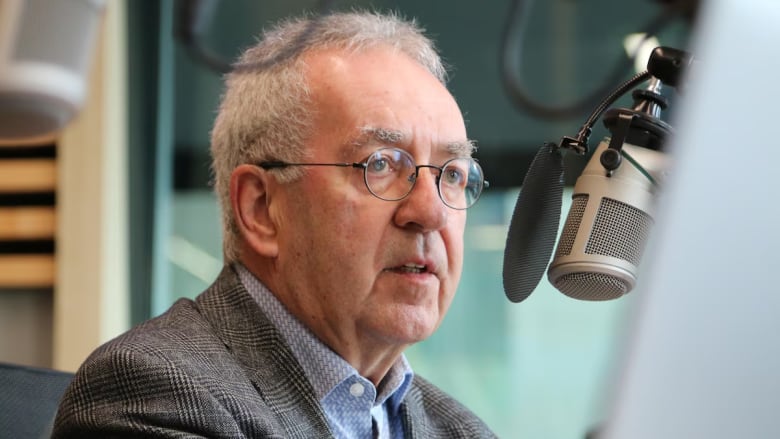
Quebec’s College of Physicians is calling for an urgent plan to improve health services in the province’s Far North after releasing a damning report on the lack of access to health care in the region.
Signed by College president Dr. Mauril Gaudreault, the report published on Monday points to a lack of basic equipment in Nunavik and a reliance on medical and other specialists who are not stationed in the region full time.
Gaudreault spent four days in Kuujjuaq, the region’s largest community, last year gathering testimonies from health-care professionals, managers and patients as part of a tour of Quebec’s health facilities.
The report says it was important for the College to understand what led physicians in Nunavik to request support from the Red Cross in February 2023.
Gaudreault said Monday in an interview with Radio-Canada’s Tout un matin that what struck him the most about his visit to the Far North was “the psychological distress of caregivers and doctors,” who remain resilient while facing difficult working conditions.
“I couldn’t believe what I saw there,” he said. “The conditions are nothing like those found elsewhere in Quebec.”
Running water is unavailable in almost all of the villages, and power outages happen often in the region, the report highlights. Gaudreault also pointed to the fact that the communities are not connected by road.
He writes that he’s “not convinced that the majority of Quebecers are aware of” the state of health care in the Far North, “nor that they would accept this level of care in their own region.”
“Even if all regions are struggling in the health network, this one is especially,” Gaudreault said.
No 24-hour operating rooms
Patients with health problems in the Far North who require acute medical care beyond the resources available on-site are transferred by plane to Montreal. That process is described in the report as “almost systematic.”
Kuujjuaq, which is a two-hour flight away from Montreal, has about 3,000 residents with one health facility to serve them: the Centre de santé Tulattavik de l’Ungava.

About 12,000 Inuit live across 14 villages in the territory of Nunavik, which spans 500,000 square kilometres — one-third of Quebec’s surface area. They are served by the Centre de santé Inuulitsivik in the village of Puvirnituq.
Neither of the two facilities have a 24-hour operating room or an intensive care unit, and CT scans aren’t performed there.
Yet, several accidents occur on the territory, which often involve all-terrain vehicles. Work or hunting injuries also happen frequently.
Due to the absence of full-time specialist physicians in northern Quebec, the few dozen physicians on-site must rely on help from colleagues “who annually fill the equivalent of 200 weeks of health care” while dealing with an important nursing shortage.
Social responsibility
Among the solutions proposed by the College is a reconsideration of quotas used to determine how many doctors are deployed to the region.
Although fewer people reside in northern Quebec than in the rest of the province, the territory is vast and the population has specific needs, including overcoming “significant linguistic and cultural barriers.”
“The issue of racism was raised and should give rise to training on cultural safety in health care,” the report says. “It must be said that due to a set of colonial factors, the trust deficit is widening between the Inuit and medical professionals.”
The report notes that Quebec’s Health Ministry says it is working with the federal government to develop a comprehensive health services plan for Nunavik.
The College says in the report that the plan must be completed within the government’s current mandate.
Addressing those issues is a matter of “social responsibility,” Gaudreault said.
Natasha MacDonald, an assistant professor at McGill University who is an Inuk, said it is important that the College and Gaudreault acknowledged issues of racism in the health-care system.
“As Indigenous people, we talk about these concerns, but, you know, sometimes they fall on deaf ears,” she said, adding that she hopes the report will inform much-needed changes.
Quebec Health Minister Christian Dubé said in a statement on X Monday afternoon that his ministry has contacted the College to discuss issues raised in the report that are specific to Nunavik.
“We are very aware of the issues facing our health and social services system and our staff, which is why we developed the Plan santé,” Dubé said.
He added that the ministry, along with its partners, will provide an update in the coming weeks on the plan.